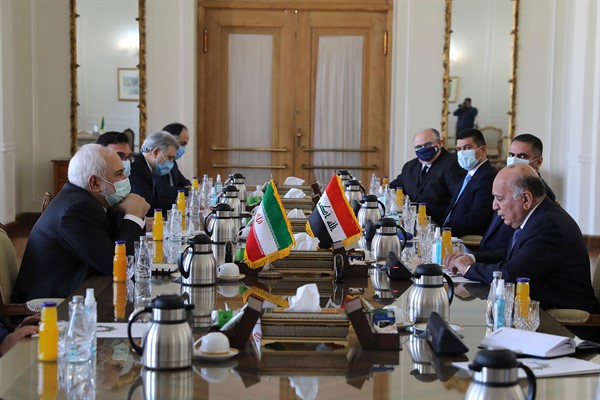Dialogue seems to be in vogue in today’s Middle East. Iranian and American negotiators are in Vienna to find a way to restore the 2015 nuclear deal that President Donald Trump withdrew from in 2018. Iranian and Saudi security officials recently held meetings in Baghdad to mend their relations. and United Nations-led efforts to deescalate and end the war in Yemen are picking up steam. While these processes remain fragile, they present an important opportunity to establish a broader regional dialogue that aims to lessen tensions by opening new channels of communication, the time for which is ripe.
Part of the backdrop to these conciliatory efforts is the failure of former President Donald Trump’s “maximum pressure” campaign, the cornerstone of his attempt to extract better terms from Iran on the nuclear front and reduce its regional influence. This campaign saw the reimposition of wide-ranging sanctions on Iran beginning in 2018, along with an increase in bellicose rhetoric and military posturing from the United States and its allies. The policy flopped: Iran did not return to the negotiating table; its nuclear and missile programs grew exponentially; and it became more aggressive in the region and more repressive at home.
The Gulf Arab states, which threw their full support behind “maximum pressure,” paid a hefty price for its failure. If Saudi Arabia and the United Arab Emirates were hoping that the approach would clip Iran’s nuclear wings and constrain its power-projection across the Middle East, it instead emboldened Iran to target their economic interests at a time when both countries crave stability—the UAE, as it looks to celebrate the 50th anniversary of its unification and host the World Expo; and Saudi Arabia, as it deals with the economic consequences of the COVID-19 pandemic coupled with long-declining government revenues. The Gulf states’ allegations of Iranian influence in Yemen have turned into a self-fulfilling prophecy, increasingly pushing the Houthi rebels into Iran’s arms and prompting them to strike directly at Saudi Arabia.

